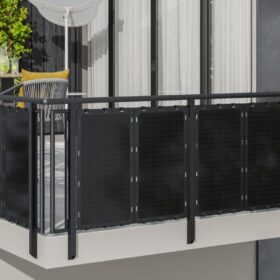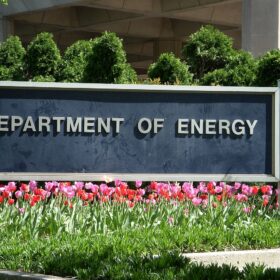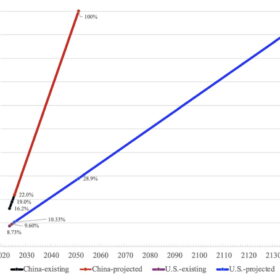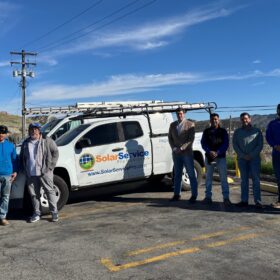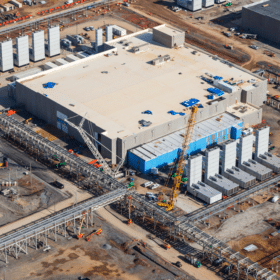Sunnova auctions gear as solar company struggles to survive
The financially challenged residential solar company plans to auction an estimated $17 million of energy storage from Generac and other components.
Solar cells were not exempted from import tariffs in recent Executive Order
Solar cells are not exempt from the recent reciprocal import tariffs, and recent reporting by major media outlets appears to be a mis-interpretation of government documentation.
National battery fire standards being pushed for consideration
The American Clean Power Association is pushing for greater safety standardization in the energy storage industry, guided by the National Fire Protection Association, and their under development NFPA 855 standard.
California battery dominance coming into view
The Golden State is deploying energy storage at an exponential pace, doubling capacity every 1.2 years according to a California physicist. This raises a critical question for the state’s renewable future: what happens next?
Clean electricity could surpass 50% of generation this April
Solar growth bolsters other clean energy sources after 90 GW of new solar capacity was deployed over the last two years. Big solar generation grew by more than 58% in January versus last year, with all types of photovoltaics delivering just over 5% of the nation’s electricity.
Solar module prices up a penny in 2025 as market absorbs tariffs
Solar module prices in the United States rose for the first time since summer, according to an Anza report, driven by tariff adjustments and uncertainty over ongoing patent litigation. While prices have since stabilized, module type, cell origin, and geopolitical factors continue to shape the market.
Global solar installations could reach 1 terawatt next year
BloombergNEF reports that the world installed nearly 600 gigawatts of solar power in 2024, closely aligning with projections that annual global solar installations will surpass 1 terawatt within the next few years. Although projections for 2025 currently fall short of that pace, early forecasts often underestimate actual deployment.
Community solar up 42%, C&I up 18%, residential down 25%
Distributed solar fell 11% in 2024, dragged down by the residential segment, according to Ohm Analytics’s Q4-2024 report. However, signs of recovery emerged with a strong fourth quarter and increasing installation volumes throughout the year.
Twitter’s solar sentiment tilts negative as political polarization rises
Researchers found that from 2013 through the end of 2022, Republican and Southern regions of the United States showed increased negativity toward solar power, potentially due to heightened political attention as solar development expanded.
Balcony solar gains unanimous bipartisan support in Utah
A new Utah bill allows portable solar power systems of up to 1.2 kWac to connect directly to 120V outlets without interconnection applications or utility fees, provided they meet NEC and UL certification standards.









